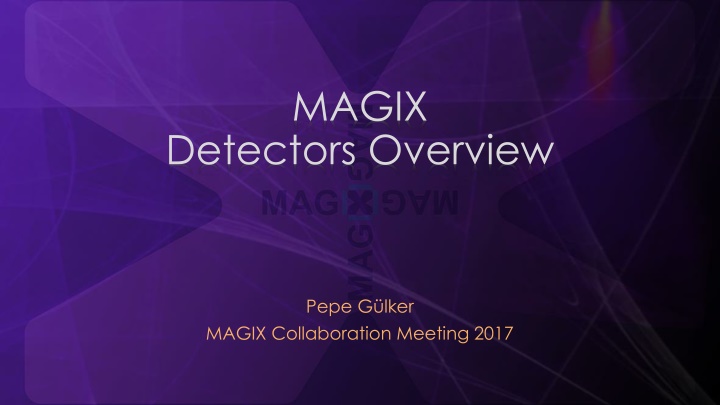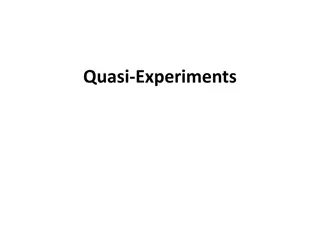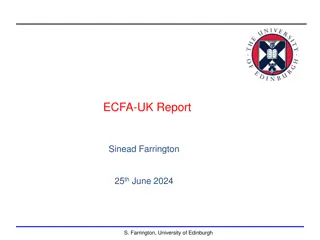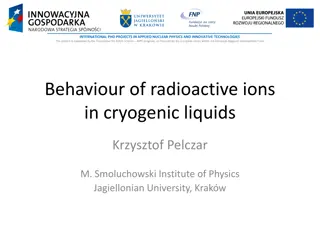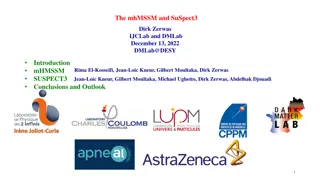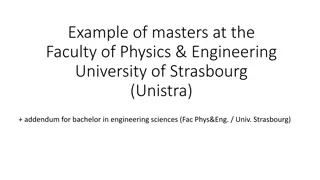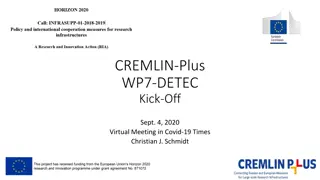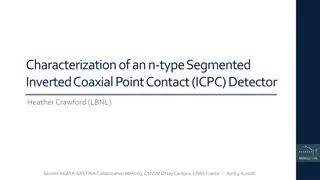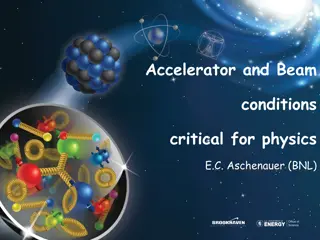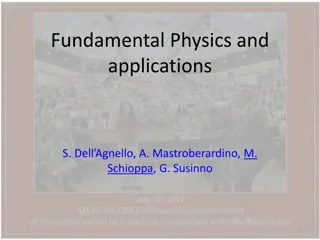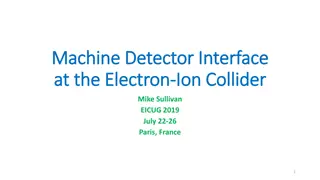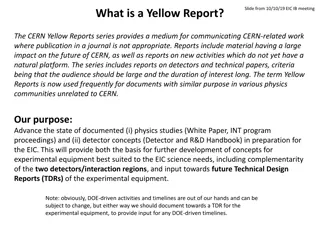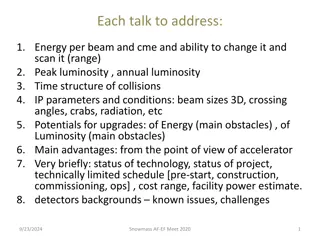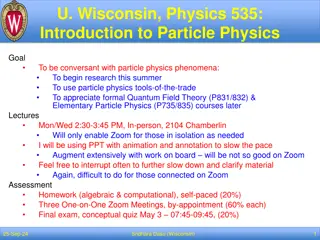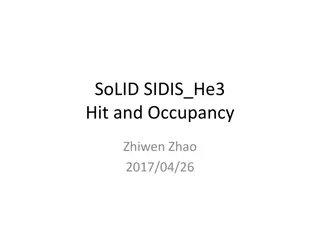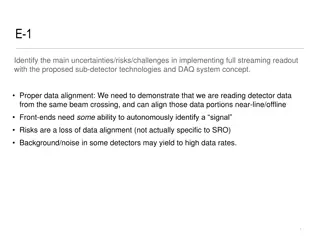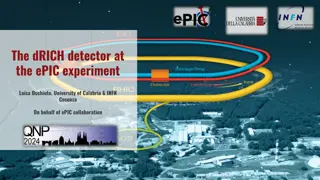Advanced Detector Technologies for Particle Physics Experiments
Overview of advanced detector technologies and focal plane detectors used in particle physics experiments, including topics such as electron scattering, energy recovery, and momentum focusing. Details on design requirements, target specifications, and angular range for precise measurements in particle tracks.
Download Presentation

Please find below an Image/Link to download the presentation.
The content on the website is provided AS IS for your information and personal use only. It may not be sold, licensed, or shared on other websites without obtaining consent from the author.If you encounter any issues during the download, it is possible that the publisher has removed the file from their server.
You are allowed to download the files provided on this website for personal or commercial use, subject to the condition that they are used lawfully. All files are the property of their respective owners.
The content on the website is provided AS IS for your information and personal use only. It may not be sold, licensed, or shared on other websites without obtaining consent from the author.
E N D
Presentation Transcript
MAGIX Detectors Overview Pepe G lker MAGIX Collaboration Meeting 2017
Topics From Physics to Numbers Spectrometers Focal Plane Detectors Trigger System Other Detector Systems Summary 2
MESA Numbers Energy Recovering External loop half-wave length Electron energy transferred back to cavity MAGIX on the recirculating beam @105 MeV External loop after two recirculation Thin gas target on the beam path with a dedicated detector Beam current up to 1 mA 3
From Physics to Numbers Electron Scattering Pair Production Momenta Angles Elastic or inelastic Form factor measurements Proton radius e+e- coincidence With SM or dark U(1) photons
How to get the numbers? Target Thin (internal) target But get max luminosity Different gases 4 Solenoid or toroid Far better acceptance Spectrometer Far better resolution (2 orders of magnitude) Like A1 Worse acceptance 2 for coincidence 5
Spectrometers Detectors Focal plane Particle track
Magnet Optics Momentum focusing Particles of different momenta at different positions Mapping of momenta to position Detectors Focal plane EXPLAIN MAPPING Particle track Angular focusing Parallel-to-point focusing Mapping of angles to position See talk by Julian
Design Detectors Momentum resolution 10-4relative momentum resolution Assuming 50 m resolution @ focal plane Acceptance 200 MeV maximum momentum 90 MeV momentum acceptance @ 200 MeV Focal plane Angular range 0.05 0.2 Particle track See talk by Julian
Detector Requirements Needs 120 x 30 cm2 50 um spatial resolution (in given environment) 9
Focal Plane Detector x 2 10
Focal Plane Detector Concept GEM based hodoscope Electronics Radiation length is crucial -> thin GEMs Better for high rates Only 2 points per track No gaps allowed -> big foil Dedicated readout 10k Channels per module O(MHz) rate See my talk about electronics & DAQ 11
High Rates Rate O(1MHz/cm2) MAMI BT tests with prototype -> up to 2.2 MHz -> see talk by Mirco Data tacking needs new electronics -> see my talk about DAQ Needs to be tested with bigger prototype NIKLAUS BERGER 12
Material Budget Crucial for hodoscope Make readout structure thinner -> see talk by Yasemin Make copper coating thinner or skip it totally -> Chromium GEMs Need BT to measure radiation thickness Design Goal? 0.2% X0? 13
Spatial Resolution < 50 m Routinely achieved with 400 m pitch readout -> see talk by Yasemin Working on hit reconstruction software -> Diploma thesis Matthias Measurements done with reference detectors -> HVMaps Nick Berger NIKLAUS BERGER 14
Large Area Detector: 1.2 x 0.3 m2 Foil stretching seems achievable Readout is more problematic No gaps allowed 15
Plan B? 16
Plan B Short Drift TPC SD TPC Worse point resolution Better track resolution May consist of different modules Radiation length not a problem Spec design has to be adjusted Bernhard Ketzer 17
Ongoing Make it bigger Go to 30 x 30 Make it thinner Foil-based readout Chromium GEMs We joined the RD51 (more or less) Work on reconstruction software 18
Other Detectors Silicon Strip Trigger Recoil Protons Inside Scattering Chamber Segmented -> ROI ToF
Other Detectors Tagger Measure Luminosity After first Dipole
THANK YOU FOR YOUR ATTENTION! http://magix.kph.uni-mainz.de
Backup 22
